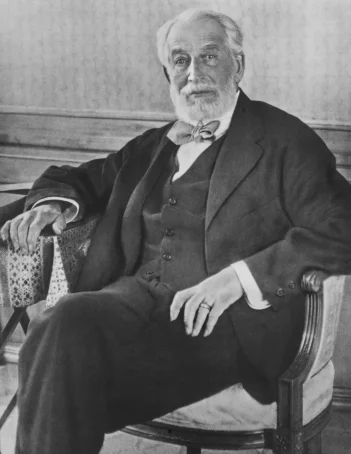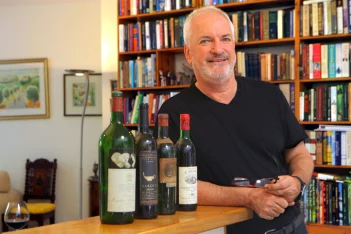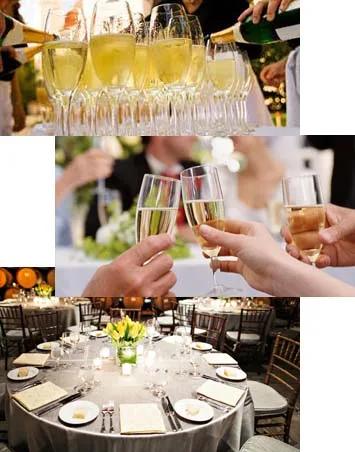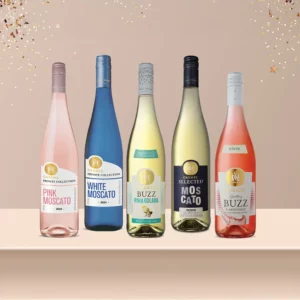Wedding season is approaching and planning for those special days is underway. A question every wedding organizer should decide at an early stage is, who is taking care of the wine I am sure for every simcha, there have been endless food tastings, with discussions down to the finest details. It always surprises me the attention the preparation of the menu receives, whereas with regard to wine, people seem happy to go with whatever the caterer offers.
However, the choice of wine can leave an impression and affect the enjoyment of your guests. So forgive me for giving a little focus to wedding wine here.
If it is your responsibility, you will need to consider a drink as an aperitif as guests arrive, the pre-ceremony drinks bar and then, last but not least, wine for the meal itself.
Ideally a sparkling wine should be served on trays by waiters moving amongst guests as they arrive. Champagne is the classic wine for the aperitif. However you don’t need to pay for real champagne which is expensive in Israel. There are Israeli sparkling wines and kosher imported sparkling wines at more convenient prices.
It is tempting for a wine lover to choose a bone dry sparkling wine because that is what they like. Remember for a function you are buying to satisfy the lowest common denominator of wine lovers. So a sparkling wine with a touch of delicate sweetness may be a better choice. (Confusingly ‘Extra Dry’ on the label will be sweeter than a sparkling wine described as Brut.)
What caterers love to do is add cassis to a sparkling wine to make a Kir Royal. This makes the sparkling wine sweeter, and it will certainly be a beautiful color. However, I can’t help thinking that any addition destroys the quality of the sparkling wine. When I receive a Kir Royal I always think they have done it to mask the quality of a pretty dire sparkling wine.
My advice is, if you want the sweetness, buy a sweeter sparkling wine and if you want the pretty color, buy a rosé. I am a fan of rosé sparkling wines for weddings. Their delicate, salmon pink color seems to be suitably romantic.
Many caterers and banqueting halls readily offer a sickly sweet, bubbly, soapy, often colorful liqueur cocktail before an event. Again, I suggest sticking to straight sparkling wine. Certainly bubbles have never been more popular.
You will need wine at the bar. Normally the wine offered will be the cheapest wine from a recognizable large winery, but the label will be unrecognizable, because it will only be used in function halls. It will normally be a red, maybe a Merlot and a white, which is often an Emerald Riesling.
The sensible choice is to rely on the house wine of the caterer which will automatically be the cheapest wine their negotiating skills could arrange. However if you are buying wine both for the bar, the aperitif and the meal, you can save bottles by choosing the same two wines to cover every situation. Cabernet Sauvignon and a semi dry Gewurztraminer may be an upgrade on the Merlot and Emerald Riesling.
The standard at most function halls, is to find a red wine sitting in the middle of your table, usually chilled. For a white wine, you have to ask the waiter, if you can find one. I certainly don’t mind if the red wine is cold. By the time it is drunk, it will be pleasantly chilled and refreshing, rather than too warm.
There is of course no reason why you should not upgrade the wines offered initially. You may choose a more expensive menu to give your guests better food. You can also ask to upgrade the wine to gain better value for your shekel.
There are creative options. I recently went to a wedding where a basic white wine was served in ice buckets on the tables. At a side table better quality red wines were available. The host was making a statement & complimenting his guests. What was interesting was that most were content with the wine on the tables. Only those that valued the expensive wines, & knew what they were, took the trouble to seek them out. This idea enabled the host to offer a far better wine, but waste the minimum bottles on those that would not appreciate it.
Just make sure, that if you bring you own wines that you don’t need to pay a corkage fee to the caterer, whose interest may be to push the wines that he is contracted to sell. You should also check you don’t need Mevushal wines (pasteurized wines).
I recently provided wine for a family wedding. All was arranged and delivered in advance. When I arrived, relaxed and ready to enjoy myself, my precious wines were nowhere to be seen. I asked where the wine was and was told the Rabbi did not allow it as it wasn’t mevushal! Of course no-one thought to let me know beforehand.
All was resolved after some screeching and wailing, but let my experience be a warning to you. No harm in checking in advance that your kosher wine is kosher…….if you see what I mean!
You should always ensure there is too much wine. It would be embarrassing to run out at your daughter’s wedding. However ensure that the caterer does not open all the bottles in advance (which happens too often) and then when you want to collect the unopened wine, there will be none.
Best choice are light, fruity red wines and an off dry white wines. How many bottles to buy I believe the average size of champagne flute glass used a weddings will allow you to get 8 glasses out of a bottle. Allow for six glasses for a wine served in a normal wine glass. In Israel, I calculate conservatively on a basis of one glass per person. The people who drink more than one glass are balanced out by those who don’t drink at all. There should certainly be at least enough red & white wines to put a bottle of each on every table.
As for the wine, buy in bulk to get the best price. Retailers will give discounts on purchases by the case. A savvy retailer may allow you to return unopened bottles. In Israel I would go for a balance of 60-65% red wines, 35-40% white wines.
If it is a do it yourself affair and you want to chill a number of bottles quickly, then the best way is to put the wines in a large plastic container or a bath tub. Fill it with ice, which may be purchased from a nearby petrol station. Pour in water to cover the bottles and add a little salt which will quicken the cooling process. If you use a domestic fridge, put the wines in at least two hours before you need them.
Finally, don’t forget the most important wine. There are two cups of wine under the Chuppa. The blessing for wine is said and the bride and groom then each take a drink, which is symbolic of the new partnership. It reminds me of all the good bottles of wine they will be sharing in future.
After this, the Sheva Brachot, or seven blessings, are recited, and the happy couple again share in drinking the cup of wine. For me the wine has to be a special one which has a meaning for both parties. Some couples have their song, others have their wine. However my lofty ideals fall on stony ground as a basic Kiddush wine seems the choice of most couples.
The choice of wine can make a difference about how an event is perceived. To splash out on everything, but skimp on the wine, is a pity. Conversely, choosing the right wine can make a meal into a banquet.



















